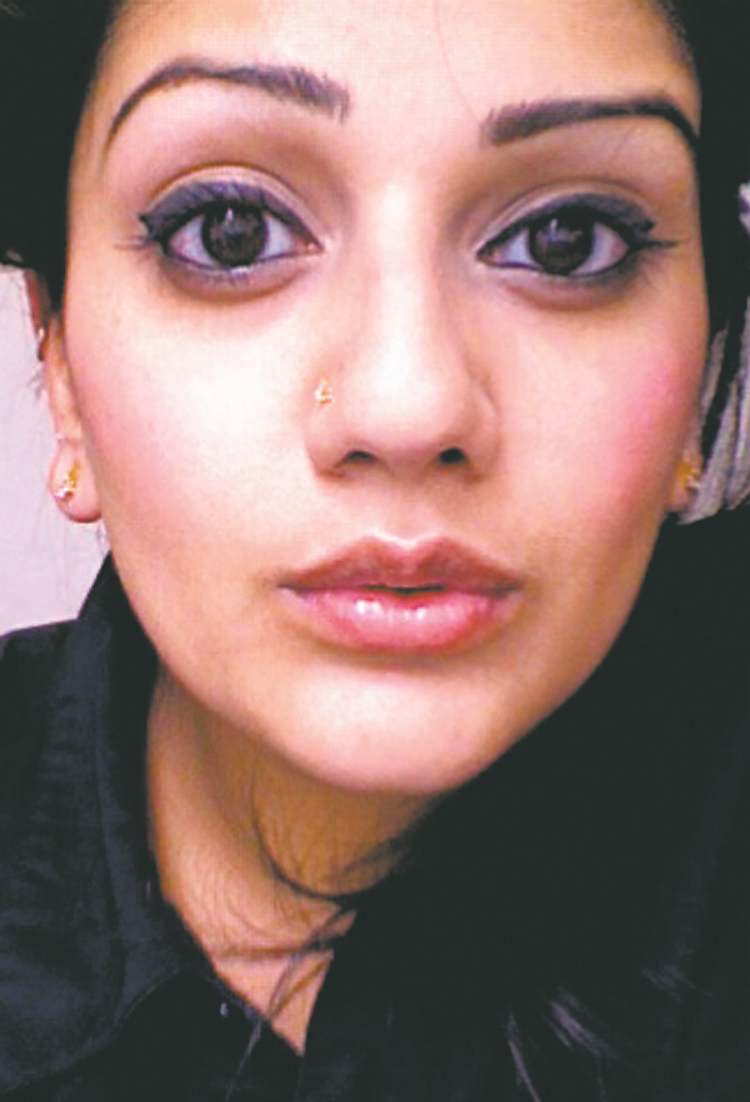Artist Divya Mehra uses humour ‘to cut a tense situation’
Advertisement
Read this article for free:
or
Already have an account? Log in here »
To continue reading, please subscribe:
Monthly Digital Subscription
$0 for the first 4 weeks*
- Enjoy unlimited reading on winnipegfreepress.com
- Read the E-Edition, our digital replica newspaper
- Access News Break, our award-winning app
- Play interactive puzzles
*No charge for 4 weeks then price increases to the regular rate of $19.00 plus GST every four weeks. Offer available to new and qualified returning subscribers only. Cancel any time.
Monthly Digital Subscription
$4.75/week*
- Enjoy unlimited reading on winnipegfreepress.com
- Read the E-Edition, our digital replica newspaper
- Access News Break, our award-winning app
- Play interactive puzzles
*Billed as $19 plus GST every four weeks. Cancel any time.
To continue reading, please subscribe:
Add Free Press access to your Brandon Sun subscription for only an additional
$1 for the first 4 weeks*
*Your next subscription payment will increase by $1.00 and you will be charged $16.99 plus GST for four weeks. After four weeks, your payment will increase to $23.99 plus GST every four weeks.
Read unlimited articles for free today:
or
Already have an account? Log in here »
Hey there, time traveller!
This article was published 31/03/2012 (4970 days ago), so information in it may no longer be current.
Divya Mehra grew up around cultural antiques.
Her immigrant parents, Kamal and Sudha, own the East India Company, a downtown restaurant lavishly decorated with historic Indian carvings, tapestries and statues.
Her three brothers all joined the family business. But the Winnipeg-born Mehra, 30, went in another direction. She’s a multimedia artist with a growing reputation for provocative short videos, photographs, text works and installations.

Mehra’s trademark is using sardonic wit to critique racism, power, privilege and cultural displacement.
“To cut a tense situation, I use humour,” she says.
Take, for instance, her ironic 2009 video The Importance of Being Earnest. In it, a windblown Mehra lip-synchs the rapturous song A Whole New World from the cartoon musical Aladdin while behind her, idealized images of the disputed territory of Kashmir give way to photos of bloody violence between Hindus and Muslims.
“Unbelievable sights, indescribable feeling,” she croons.
Mehra’s work is edgy, intended to unsettle the viewer. For a recent solo show in Vancouver, she created a neon sculpture of pacifist Mohandas Gandhi’s face, with one eye that winked. Next to it was a violence-threatening quote from gangsta rappers N.W.A., with “Paki” replacing the N word of the original lyric.
The St. Vital resident earned her undergraduate degree from the University of Manitoba School of Art and completed a master’s in fine arts at New York’s Columbia University in 2008.
She has shown at the Winnipeg Art Gallery, Plug In, Platform, Aceart and La Maison des artistes, as well as internationally. She’s in distinguished company as one of 62 Canadian artists chosen for Oh, Canada, a show opening May 27 at the Massachusetts Museum of Contemporary Art.
Comic books, hip hop and Indian movies have influenced Mehra. “My brothers and I were exposed to a lot of Bollywood cinema – movies from the ’70s and ’80s,” she says.
Her early videos, starring herself, poked fun at cultural stereotypes. In one, she affected a heavy accent and drove around the Exchange District in a fake “Orange Curry Cab Co.” taxi, offering rides.
Recently, she’s done more text-based projects such as You have to tell them, I’m not a racist, consisting of phrases such as “Whites have wonderful weekends” displayed in white text on “blinding white” walls.
Last year, Mehra received a Canada Council grant and went to India to research the violence-plagued, religion-based 1947 partition of British India. The carving up of turf directly affected her family. Her mother is from Mumbai, while her father is originally from a city in Punjab. As a Hindu, he had to flee when the city became part of Pakistan.
One of Mehra’s works from her 2010 solo show Turf War is a photo for which the artist asked her mother to wear a sweatshirt that says INDIA and her father one that says PAKISTAN. The shirts are in the gang colours of the notorious Bloods and Crips. The photo’s title is The Pleasure in Hating.
“They were totally up for it,” the artist says about her supportive elders.
alison.mayes@freepress.mb.ca



